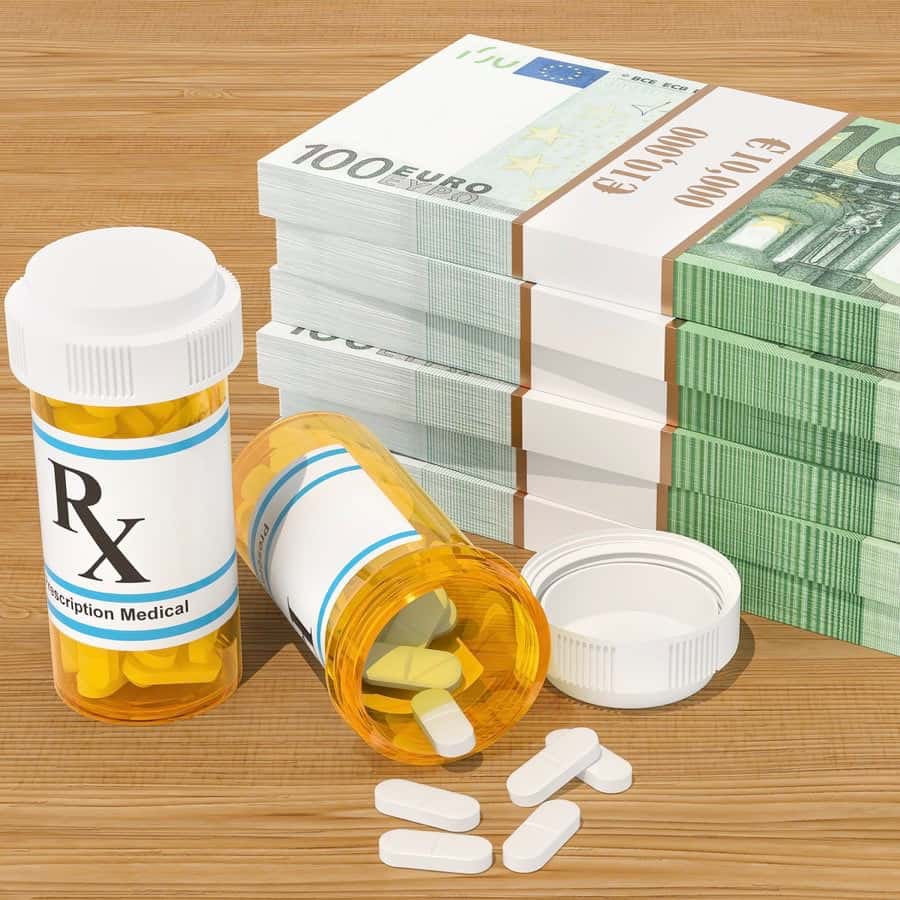
Perhaps you have seen Rx drug commercials on television. There are ads for medications to treat psoriasis, diabetes, ulcerative colitis, rheumatoid arthritis, breast cancer and lung cancer, to name just a few. Such drugs are often very expensive, but you can’t tell that from the commercials. The head of Health and Human Services (HHS), Alex Azar, has been encouraging companies to include pricing information in ads as part of the Trump administration’s efforts to reduce drug costs.
Who Wants Rx Drug Commercials with Price Information?
Last May, Alex Alzar asked the FDA to “evaluate the inclusion of list prices in direct-to-consumer advertising” of prescription drugs. What is paradoxical about this request is the fact that Alex Azar used to be a pharmaceutical lobbyist. He worked his way up to President of Lilly USA, one of the larger drug companies in the world.
While Mr. Azar was president of Lilly, prices for insulin went up substantially (Business Insider, Nov. 14, 2017). Perhaps you have heard that the high cost of insulin “Leads to Lethal Rationing” (NPR, Sept. 2, 2018).
The Washington Post Magazine published this article (Jan. 7, 2019):
“Life, Death and Insulin”
“In the past decade alone, U.S. insulin list prices have tripled, according to an analysis of data from IBM Watson Health. In 1996, when Eli Lilly debuted its Humalog brand of insulin, the list price of a 10-milliliter vial was $21. The price of the same vial is now $275.”
Here’s the People’s Pharmacy take:
High Cost of Insulin May Be Deadly
Now, Alex Azar wants drug companies like his old firm to lower prices. He believes that pricing information in prescription drug commercials will provide “fairly balanced” information. Not surprisingly, there has been push-back from some quarters. But Johnson & Johnson is breaking the ice by voluntarily choosing to start including price information with its drug commercials.
Xarelto (Rivaroxaban): Rx Drug Commercials with Price Information
J&J has announced that it will put price information in its Rx drug commercials starting next month. The anticoagulant Xarelto (rivaroxaban) will be the first medicine to get the price included in its commercials. It is J&J’s most prescribed medicine.
You say you are not familiar with Xarelto. Get up to speed with these links:
Here’s are compelling Rx commercials for Xarelto without price information for blood clots that cause DVT (deep vein thrombosis) or PE (pulmonary embolism).
“Selective” Xarelto Against Blood Clots
Here is another older commercial for Xarelto against AFib:
“Learn All You Can”
The new commercials will give Xarelto’s list price and typical patient out-of-pocket costs on the screen at the end of the ad. Currently, people without insurance pay $450 to $540 a month for Xarelto. It will be interesting to see whether Rx drug commercials with public disclosure of prices encourages more competition among drug companies and reduces what consumers have to pay.
Will Rx Drug Commercials with Price Information Make You Happy?
So, will seeing Rx drug commercials with price information solve the problem? A great many visitors to this website are not fond of these ads in the first place. We’re not sure how price information will affect their attitudes. Here are some comments associated with this article:
Are You Fed Up with the Proliferation of Prescription Drug Ads?
Bob in South Carolina is NOT happy with Rx drug commercials
“What is the purpose of these ads? Are we now in the mode where the patient tells the doctor what drugs they should be prescribing? Should patients believe in what these Rx drug commercials say over their doctor’s advice? There must be a huge tax write off for these companies otherwise pushing drugs on patients makes no sense.”
Cliff in Washington thinks the money spent on Rx drug commercials could be spent more effectively:
“We need restrictions like they have in Europe against advertising on TV. It seems to me the money would be better directed to research and development.”
Ann in Florida has had experience with the FDA:
“I have little or no respect for the pharmaceutical companies any more. They are far more profit-oriented than patient-oriented. The excuses they keep trotting out for the ever-increasing drug prices would be laughable if they weren’t so transparent and money-grubbing. They hired the best lobbyists in the business and sold consumers down the river when our “esteemed” Senators and Congressmen invited the drug folks set their own unregulated prices.
“No wonder so many Americans order their drugs from other countries – you know – those countries where prices are not set by the drug companies. Safe drugs from reliable companies are available from many places in the world at far, far lower prices then we pay.
“What has happened to the FDA? When I was in the corporate world I often dealt directly with the top echelon at FDA, and they were fantastic. They were definitely on the side of the consumer and rode herd on companies that lied in commercials, charged gouging prices, etc. Seems like today the FDA exists to rubber-stamp anything the drug companies want. I’d like to think I’m wrong, but it sure doesn’t look like it.”
What Do You Think About Rx Drug Commercials?
We would like to hear from you. Do you think pricing information will solve this problem? Share your thoughts in the comment section below.

